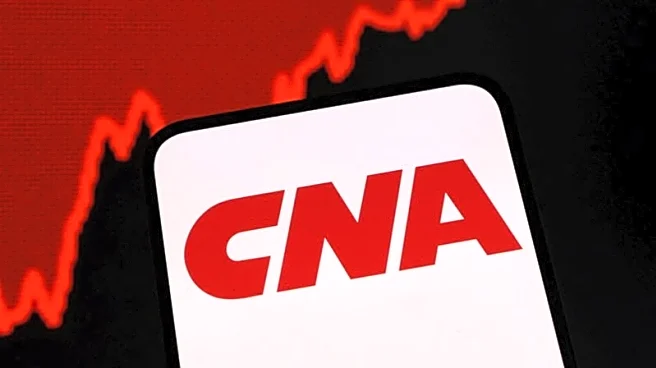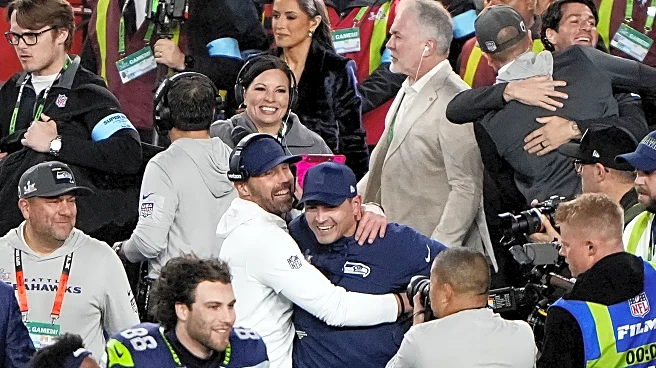What's Happening?
President Trump has signed an executive order to eliminate cashless bail in Washington, D.C. This decision aims to reform the judicial system in the nation's capital by reinstating cash bail requirements. The move is part of a broader initiative to address concerns about public safety and the effectiveness of cashless bail systems. The executive order is expected to impact how courts in D.C. handle pretrial detentions and bail decisions, potentially leading to changes in the incarceration rates and judicial processes.
Why It's Important?
The elimination of cashless bail in D.C. could have significant implications for the judicial system and the community. Critics of cashless bail argue that it can lead to increased crime rates and public safety risks, while supporters claim it reduces the financial burden on defendants who cannot afford bail. The executive order may affect the balance between ensuring public safety and protecting individual rights. It could also influence similar policies in other jurisdictions, prompting debates on the effectiveness and fairness of cash bail systems.
What's Next?
The implementation of the executive order will require adjustments in the D.C. court system, including changes to pretrial procedures and bail assessments. Legal challenges and public debates are likely to arise as stakeholders evaluate the impact of the policy change. Advocacy groups and legal experts may push for alternative solutions to address concerns about fairness and public safety. Monitoring the effects of the order on crime rates and judicial outcomes will be crucial in assessing its success.










